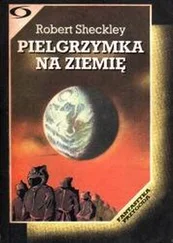Magic, Maples, and Maryanne
Robert Sheckley
Robert Sheckley lives in Portland, Oregon. A satirist even better known for his short stories than his novels, he has been writing since the early 1950s and is one of the classic SF writers of the last five decades. His hundreds of wild, ironic, and stylistically graceful stories over the years tend to combine elements from a variety of genres: fantasy, science fiction, detective, and even conspiracy theory. He is known as a master of the plotted story, the kind that ends with a satisfying turn of events.
He wrote “The Seventh Victim,” which was the basis for the ’60s movie The Tenth Victim, starring Marcello Mastroianni and Ursula Andress. Many of his stories are collected in Citizen in Space, Can You Feel Anything When I Do This?, and seven other books. He has been selected as Author Emeritus for 2001 by the SFFWA. His most recent books are the fantasy novel Godshome (1999), and a “soft-boiled” detective series Soma Blues (1997), Draconian New York (1996), and The Alternative Detective (1997). His Web site is at www.sheckley.com.
This light-hearted allegory appeared in F & SF. In it, a young man trying out the possibilities of magic discovers appealing possibilities beyond magic, happily shedding the identity of magician for another role, yet to be discovered. Most writers would compel a character who figured out how to make magic make money, to continue making money (and find happiness that way). Sheckley, however, is fond of playing, to use the current phrase, “outside the box.” It is also an interesting comparison to the Scott Bradfield story.
A few years ago I was working at Sullivan’s department store in Manhattan. In the evenings, I returned to my one room apartment on New York’s Lower East Side and practiced magic. Magic exists. But once you write down your methods, magic stops working. And once you start asking for specific things, instead of taking what magic is willing to give, you are letting yourself in for trouble. I kept my secrets to myself.
It is not a utilitarian thing, this matter of magic. Once you enter it, you move into realms where things happen in accord with a logic that becomes clear only in retrospect. The elusiveness, the contrariness of magic explains what happened to those magicians of old who produced gold and counted kings among their patrons, rose to power and influence, only to be proven frauds and mountebanks and have everything taken away from them.
But the best of them weren’t frauds. They had compromised their powers by revealing them to kings and learned men, and by asking for wealth for themselves. They had brought the inscrutable wrath of magic down on their heads.
I had a sense of the purity of the matter, but I wasn’t completely convinced of it. That’s how I got the Donna Karan jackets.
My job at Sullivan’s was to take the old stuff off the racks and display dummies and put out the new stuff. My researches in magic were going well for me at that time. I had discovered the principle of the temenos; the importance of creating a sacred space. I learned for myself the words and combinations of words, sounds, and gestures that seemed to hold magical possibilities. And sometimes, things appeared overnight in my temenos, my sacred space. Once, magic gave me a small elephant carved in mellow old ivory. I was able to sell it to a curio shop for two hundred dollars, even without being able to say where it came from. The productions of magic provide no provenance. But mainly, my investigations didn’t bring me anything tangible. I wondered if I could specify something and ask magic to make me a copy of it, or bring me another one like it. That didn’t seem too much to ask.
Working alone late one night, I set up a portion of the stock room as a sacred space. I drew the magical lines. I put in a Donna Karan jacket for the spirit to look over. Early next morning, I was gratified to find four copies of this jacket. That, plus the original, made five. I never knew which was the original. They were all identical, even down to the tiny flaw in an inner seam. I didn’t know at the time that magic had plans for me. I didn’t know I was being watched by no less a person than Phil, the floor manager.
Phil walked in while I was putting away the extra jackets in my backpack. “What have we here?” he asked.
“These four jackets are mine,” I told him.
He smiled his superior smile. “Don’t happen to have a sales slip, do you?”
“You don’t understand,” I said. “These jackets don’t belong to the store. I made them.”
Phil looked at the jackets more closely. “I know this model. It’s what we have in the display
space.”
“That’s the original,” I said. “These others are my copies.”
Phil looked them over, frowned, and said, “Well, let’s go to my office and straighten this out.”
Phil had an office on the mezzanine above Sullivan’s main floor. After checking the floor model, he went to his computer and called up the item number. He was surprised to find it was one of a kind.
“That must be wrong,” he said. “We must have ordered five of these.”
But a phone call to our distributor told him he had indeed ordered only one. The other four could not be accounted for. “I really don’t understand,” Phil said.
“It’s my fault,” I said.
“You? How could that be?”
“I did it,” I told him. “I’m sorry about this, sir. I don’t want to cause any trouble. I need this job. Look, you can have the jackets. I promise I won’t do it again.”
“Let me try to follow your reasoning. How did you do it?”
“I just did it,” I said, still not wanting to tell him about the magic.
“But what did you do, specifically? You must have done something. These jackets didn’t just fall out of the air.”
“As a matter of fact, that’s exactly what happened. Or so I believe. I didn’t see it myself. We’re not supposed to.”
“We?”
“Magicians, sir.” I knew I’d have to come out with it sooner or later. Phil looked at me, his eyes narrowed, brows wrinkled.
“Explain.”
“I do magic,” I told him.
“I see,” Phil said. “I do it in a temenos, a sacred space,” I babbled, as if that would make it all clear. Phil stared at me and frowned and looked like he was going to fire me on the spot. Then his face took on a thoughtful look, and he stared at the jackets for a while. At last he said, “Can you make something appear here on the table in front of me?”
“Oh, no! Magic doesn’t work in the open. It doesn’t like anyone watching. It’s not like science, you know. It’s magic, it loves to hide.”
“So what do you do if you want to get something?”
“I do the magic, in the temenos. But usually I don’t wish for anything specific. I don’t think magic likes that.”
“Okay, sure, whatever. But when you do this magic of yours, something always turns up in your sacred space?”
“Not every time. But surprisingly often.”
Phil stared at me for a long time. Finally he said, “This is crazy, you know.”
“I know,” I said.
“But I’m interested. I’d like you to demonstrate for me.”
“I could do that,” I said, “but not here in the store. I don’t think magic liked me doing
that. But in my own apartment…”
“Sure. I don’t care where you do it. I just want to see it.”
We met two nights later. Phil was good enough not to sneer outright at my small, cramped slummy apartment. But I knew what he was thinking: this guy can do magic? I must be crazy to be here. Still, here he was. He had brought something for me to duplicate. A very small gold coin. Phil said it wasn’t worth much—just twenty dollars.
Читать дальше





